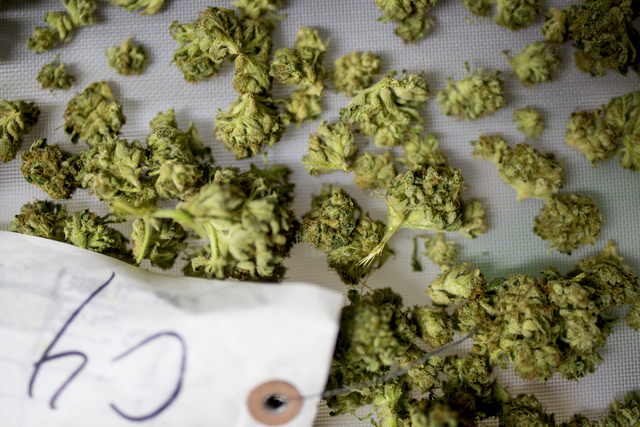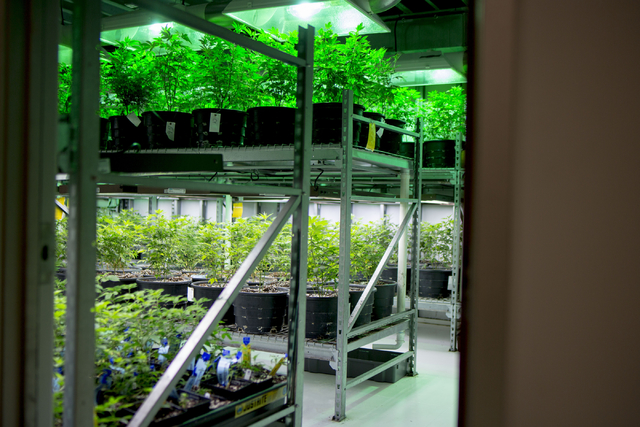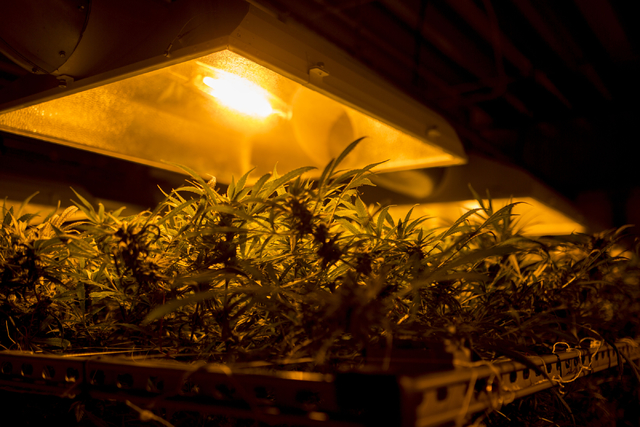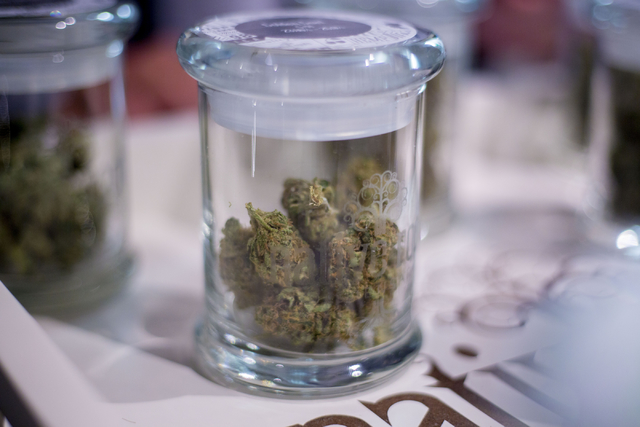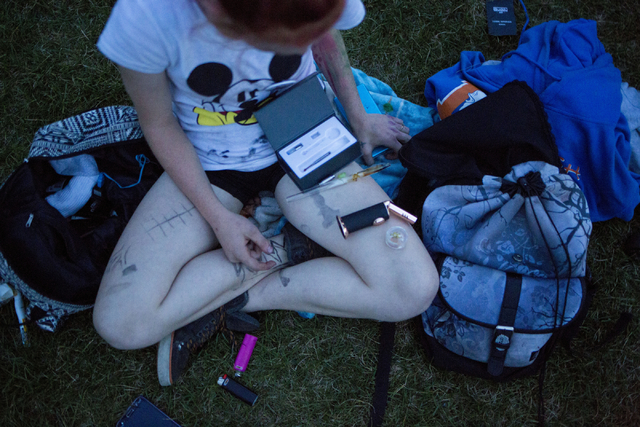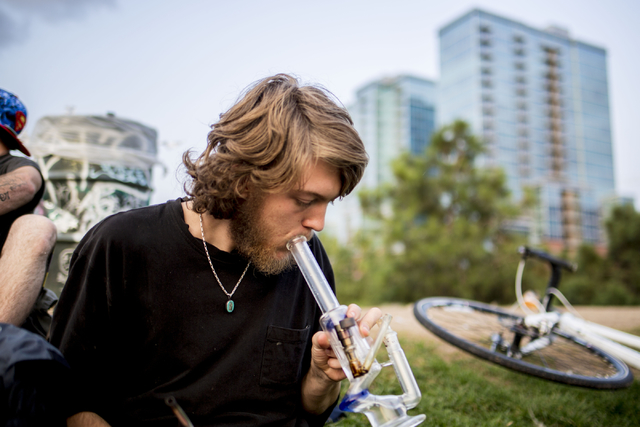For average marijuana user, legalization may not alter enforcement in Nevada
Should Nevada voters legalize recreational marijuana come Nov. 8, the penalties for the drug’s average recreational user will see a massive overhaul.
But in practice, policing of the drug won’t change much, Metropolitan Police Department narcotics Sgt. Craig Lousignont said. For the average user, at least.
While the preamble to Question 2, the Initiative to Regulate and Tax Marijuana, states an incentive to passing the act is to “better focus state and local law enforcement resources on crimes involving violence and personal property,” Louisgnont said Metro is already doing that.
“We don’t go after (marijuana) users right now,” he said. “There’s more important things to be doing.”
He clarified that arrests involving simple marijuana possession do happen, but “generally if somebody gets arrested for user amounts of marijuana, it’s because they’re making other bad choices” that result in arrest.
“If you’re a violent criminal or gang offender, and you also happen to sell marijuana, marijuana may be a tool to investigate that person,” Lousignont said. But people “buying and using usable amounts of marijuana never come under law enforcement scrutiny.”
“Why would they?” he asked. “It is not a priority by any means.”
But Tod Story, executive director of the ACLU, said that arresting marijuana users solely for simple possession “may not be a top priority for (Metro), but those priorities can change any day” depending on department leadership and resources.
LESS CONSEQUENCES, LESS BUSTS
One aspect of marijuana laws that police do enforce is busting grow houses. As the law currently stands, a person who has 12 or more marijuana plants for personal use in his or her home faces a felony, punishable by a maximum fine of $5,000 and up to four years in jail.
Should Question 2 pass, it would be legal for people at least 25 miles from a recreational marijuana dispensary — say, in rural areas — to grow up to six plants for personal use, and up to 12 plants within the same house. Growing more than that, or growing marijuana within 25 miles of a dispensary, would be a misdemeanor with a maximum fine of $600.
In that situation, it would become a felony only after you’ve been caught and convicted three previous times.
“That takes the teeth out of somebody coming into your neighborhood, renting the house, turning the whole house into a huge marijuana grow,” Lousignont said. “It would be a misdemeanor crime, which means, (like marijuana use currently), it would not be high on Metro’s priority to take those grows out of the neighborhoods. Our priorities are violent criminals, gang members, weapons.”
Lousignont said that means the law could create an “open window for the black market.”
“The way it’s written, it really takes law enforcement out of the enforcement for marijuana,” he said.
State Senator Tick Segerblom, D-Las Vegas, who is a proponent of Question 2, said “that’s the whole point.”
“The black market is addressing what we’re going to address, the legitimate demand for marijuana,” he said. “If this passes, then marijuana, like alcohol, is a drug that is regulated and taxed.”
Story, with the ACLU, argued that the passing the legislation would “eliminate the black market for all intents and purposes” because legal businesses would “take the power and necessity” from it.
PUBLIC CONSUMPTION
Under the new law, public consumption — including smoking in a moving car — would be punishable by a misdemeanor and a fine up to $600.
When asked if Metro would take the same relaxed outlook the department currently does with marijuana possession, Lousignont said “if it passed and it became law, our job is to enforce the laws as they are.”
Larry Hadfield, a spokesman with Metro, said the department would continue to enforce DUIs, “regardless of what substance the driver consumed,” including marijuana.
Segerblom noted that Question 2 does not make it legal to use marijuana in private businesses. Should the initiative pass, the legislature could later address letting localities decide whether to allow businesses, like bars and nightclubs on the Strip, to permit marijuana use.
“That’s up to the legislature or the governor,” Segerblom said.
LEVELLING THE PLAYING FIELD
Story maintained that legalizing marijuana would reduce arrests overall and address bias in the law’s enforcement.
“I guess the question today is whether or not people are still being put in jail or arrested for possession. The answer, in my experience, is yes they are,” he said.
An ACLU report in 2010 showed that black people in Nevada were four times more likely to be arrested for marijuana possession than white people. A request for records detailing possession arrests in Metro’s jurisdiction since 2011 was not fulfilled as of Wednesday.
“What we are seeing is having minorities targeted unfairly by police departments historically in Nevada, but also all over the country,” Story said. He argued the legalization of marijuana for recreational use would “eliminate the possibility of a law being enforced in a biased manner.”
“We level the playing field by not making it illegal,” Story said.
Contact Rachel Crosby at rcrosby@reviewjournal.com or 702-387-5290. Find @rachelacrosby on Twitter.




